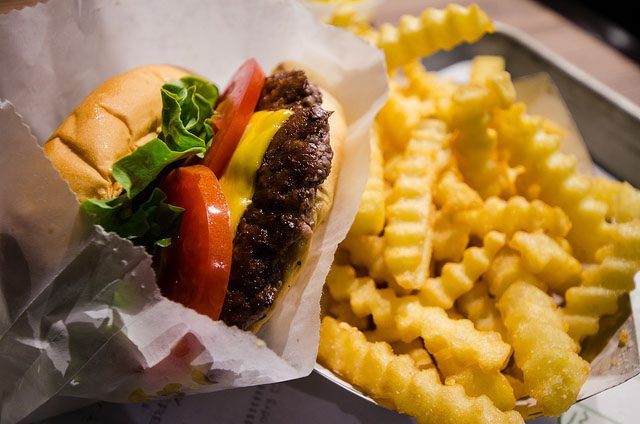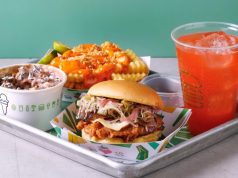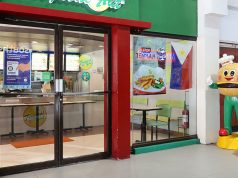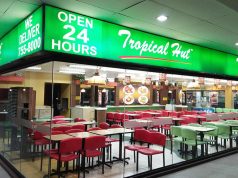
There’s palpable excitement over the announcement that famous American fast food chain Shake Shack is set to open in the Philippines in 2019.
In a Facebook post, the fast food chain announced that they would begin serving Filipinos by the spring of 2019 or around March, April or May.
It marks the chain’s first stop in its entrance into the Southeast Asian market. Shake Shack is internationally famous for their large Angus beef burgers, chicken sandwiches, Vienna beef dogs and crinkle-cut fries.
Its popularity could be attributed to different factors, Business Insider reports. They serve gourmet burgers that are considered “100 percent antibiotic-free.”
It has also been called the “anti-chain (fast food) chain” by The New York Times because of its apparent focus on the overall food quality instead of the brand’s marketing.
QSR Magazine additionally notes, “(Shake Shack) disposed of the notion that fast food had to be precooked or even prepared quickly in favor of quality ingredients and customer experience.”
How American food made its way to Philippine shores
The fascination of Filipinos to American food could be traced back to the Americans’ arrival in 1898 after the Spanish colonization.
U.S. Army soldiers brought goods such as mayonnaise, hot dogs, hamburgers and apple pies when they settled in military bases.
They also introduced the concept of fast food chains, where meals were quickly prepared for convenience.
Pepper, a food-oriented website, noted, “Along with the Joes (the Americans) came canned goods, a necessity during time of war. They introduced us to food of convenience, which was important during that era: pressure cooking, freezing, pre-cooking, canning.”
The practices were used in cooking different types of fast food meals in American establishments.

Western fast food staples like hamburgers, fries, sandwiches, steak and ice cream quickly became popular among the Filipinos, eventually capturing their hearts and influencing their lifestyle.
By the 1900’s, Filipinos began to eat cereals for breakfast besides the usual pan de sal, quickly growing an affinity towards American food. They also developed recipes that incorporated Western ingredients as well.
An example of this is how condensed and evaporated milk have replaced buffalo milk that was traditionally used by Filipinos to create desserts like leche flan.
With the arrival of fast food chains, Filipinos have widened their palate to the variety of meals offered by other cultures.
This is evident in a study released by Nielsen in 2014, where Filipinos were discovered to have increased their preference for eating at fast food chains.
According to the study, 25 percent of Filipinos eat at fast food chains at least once a week. Prior to that, in 2013, only 14 percent ate at such establishments. — with additional research by Jasmine Salanga









